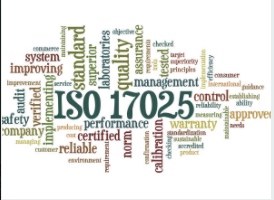As an internal auditor in a laboratory, you’re the gatekeeper of quality. You’re the one who ensures every test, from soil analysis to medical diagnostics, is accurate, reliable, and defensible. But let’s be real—keeping up with standards like ISO 17025 can feel like juggling flaming torches while riding a unicycle. That’s where ISO 17025 training comes in. It’s not just a crash course in compliance; it’s your roadmap to mastering the art and science of auditing a lab that meets international standards. So, why should you, the unsung hero of lab quality, care about this training? Let’s break it down and see how it can make your job easier, sharper, and maybe even a little more fun.
What’s ISO 17025, and Why Does It Matter to Auditors?
ISO 17025 is the gold standard for testing and calibration laboratories. It’s a framework that ensures your lab’s results are trustworthy, whether you’re testing water purity or calibrating medical equipment. For internal auditors, it’s your playbook—laying out how to check that processes, equipment, and staff are up to snuff. The standard covers everything from sample handling to record-keeping to staff competence, making sure your lab’s work holds up under scrutiny.
You might be thinking, “I already know my lab’s processes—why do I need training?” Here’s the thing: ISO 17025 is a beast of a standard, with layers of technical requirements and management systems. Training helps you decode it, spot gaps, and audit with confidence. It’s like getting a GPS for a road trip instead of relying on a crumpled map.
The Stakes Are High for Labs—and for You
Labs live or die by their reputation. A single inaccurate test result can lead to lawsuits, lost clients, or even public health risks. Think about a food testing lab that misses a contaminant or a forensic lab that botches evidence handling. As an internal auditor, you’re the one who catches these issues before they spiral. ISO 17025 training equips you to be the lab’s first line of defines, ensuring every result is bulletproof.
And let’s talk about the bigger picture. Labs are under pressure to meet regulations—like FDA requirements in the U.S. or EU directives—that often align with ISO 17025. Accreditation bodies, like A2LA or UKAS, demand compliance, and clients won’t work with labs that don’t have it. Your audits keep the lab accredited, competitive, and trusted. Plus, there’s a personal perk: being a trained ISO 17025 auditor makes you a rock star in the lab world, opening doors to career growth.
Here’s a quick detour: I read about a lab in Canada that avoided a costly recall after an internal auditor, fresh from ISO 17025 training, spotted a calibration error in their equipment. That one catch saved them thousands and kept their client’s trust. Doesn’t that make you want to sharpen your auditing skills?
What You’ll Learn in ISO 17025 Training
So, what’s in the training? It’s not just sitting through PowerPoint slides or memorizing clauses. Good ISO 17025 training is hands-on, practical, and tailored to auditors. Here’s a taste of what you’ll cover:
- Understanding the Standard: You’ll break down ISO 17025’s requirements, from technical competence (like equipment calibration) to management systems (like document control).
- Auditing Techniques: Learn how to plan, conduct, and report audits. This includes interviewing staff, reviewing records, and spotting non-conformities.
- Risk-Based Thinking: Identify risks—like improper sample storage—and suggest fixes before they become problems.
- Corrective Actions: Master how to address issues, from minor hiccups to major gaps, and verify they’re resolved.
- Practical Scenarios: Expect role-plays or case studies, like auditing a lab’s chain-of-custody process or checking calibration logs.
Training often includes real-world tools, like audit checklists or software such as Labware or Qualtrics, to streamline your work. It’s like learning to cook with a chef’s knife instead of a butter knife—same job, better results.
Why Training Isn’t Just a Checkbox
You know what’s exciting about ISO 17025 training? It’s not just about passing an audit—it’s about making your lab better. Training empowers you to ask the right questions: Is that pipette calibrated correctly? Are staff following the latest procedures? It turns you into a detective, uncovering issues before they derail your lab’s work.
The benefits go beyond compliance:
- Confidence: You’ll audit with authority, knowing you’re aligned with global standards.
- Efficiency: Training teaches you to streamline audits, saving time and reducing stress.
- Career Boost: Certified auditors are in demand, especially in industries like pharmaceuticals or environmental testing.
- Lab Improvement: Your audits drive better processes, leading to more accurate results and happier clients.
And here’s a little secret: training can be fun. Good programs, like those from ASQ or Exemplar Global, mix lectures with group exercises and real-life examples. You might even bond with other auditors over shared struggles, like deciphering messy lab records.
Getting Started: How to Choose the Right Training
Ready to sign up? Not so fast—picking the right training is key. Here’s a guide to get you started:
- Check Accreditation: Look for programs accredited by bodies like RABQSA or IRCA. They ensure quality and recognition.
- Focus on Auditors: Some courses are for lab managers, not auditors. Look for ones labelled “Internal Auditor Training” or “Lead Auditor Training.”
- Look for Practicality: The best programs include case studies or mock audits. Avoid ones that are all theory, no action.
- Consider Your Industry: If your lab tests food or medical samples, find training tailored to those fields.
Pro tip: Check if your lab’s budget covers training costs. Many organizations see it as an investment in quality. Some regions even offer grants for professional development—worth a quick search.
The Challenges: It’s Not All Smooth Sailing
Let’s be honest—training isn’t a cakewalk. ISO 17025 is dense, with technical jargon that can make your head spin. If you’re juggling audits with other duties, finding time for a multi-day course can feel impossible.
But here’s the flip side: the effort pays off. Online courses let you learn at your own pace, and many providers offer condensed versions for busy auditors. Plus, the skills you gain save your lab from costly mistakes. A lab I heard about avoided reaccreditation delays because their trained auditor caught documentation errors early. That’s time and money saved.
A Quick Tangent: The Bigger Picture
Auditing isn’t just about checking boxes—it’s about trust. Your work ensures that lab results—whether they’re for a patient’s diagnosis or a company’s product—are reliable. In 2025, with automation and AI creeping into labs, your role as a human auditor is more critical than ever. You’re the one who keeps the system honest, ensuring technology doesn’t outpace quality. Doesn’t that make your job feel a little heroic?
Tools and Resources to Level Up Your Auditing
You don’t have to go it alone. Here are some resources to make your ISO 17025 training and auditing easier:
- Software: Tools like Audit Board or Lab guru help manage audit schedules and track non-conformities.
- Standards and Guides: The ISO website has the full ISO 17025 text, and ILAC’s guidelines offer practical tips.
- Communities: Join forums like Lab Manager or LinkedIn groups for auditors to swap tips and stories.
Also, keep an eye out for webinars or workshops from accreditation bodies like A2LA. They often share updates on ISO 17025 revisions, keeping you in the loop.
Why ISO 17025 Training Is Your Superpower
Here’s a question: What’s more valuable than being the auditor who keeps your lab’s quality bulletproof? ISO 17025 training gives you the tools to do just that. It’s not just about passing audits—it’s about making your lab a trusted name, whether it’s testing soil samples or medical devices. You’ll catch issues, boost efficiency, and maybe even earn a few pats on the back from your boss.
So, what’s holding you back? Check out a training program, talk to your lab manager, and take the leap. It’s not just about learning a standard—it’s about becoming the auditor your lab can’t live without.







